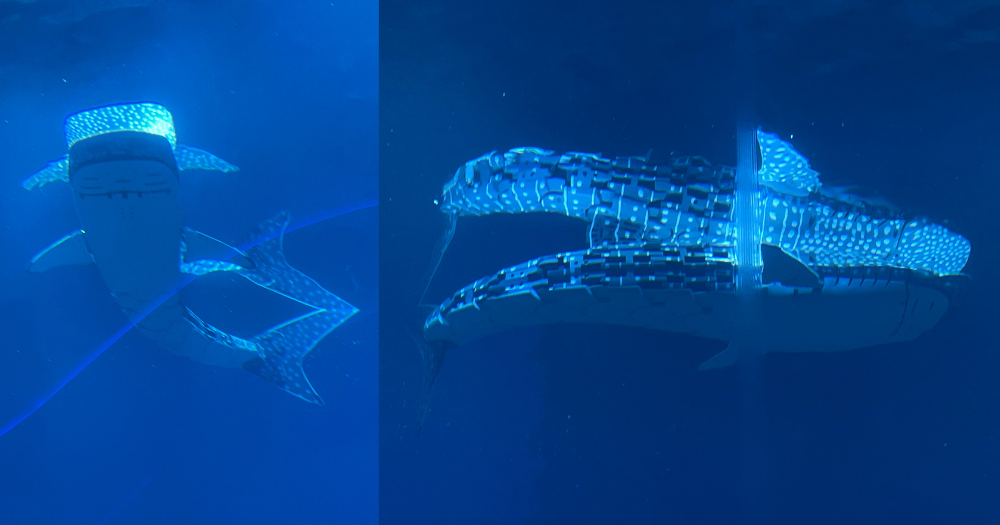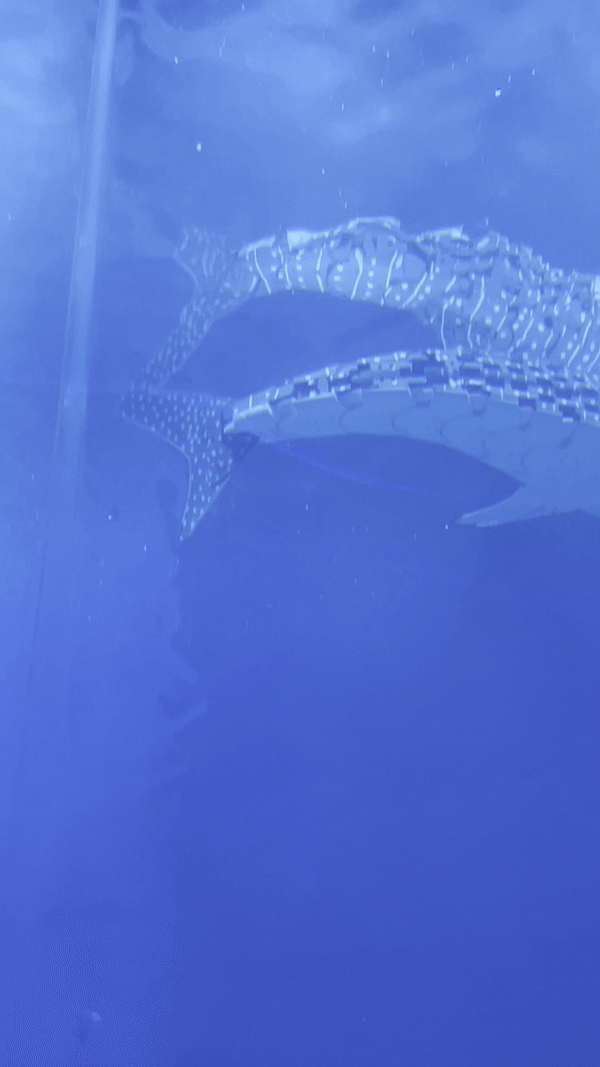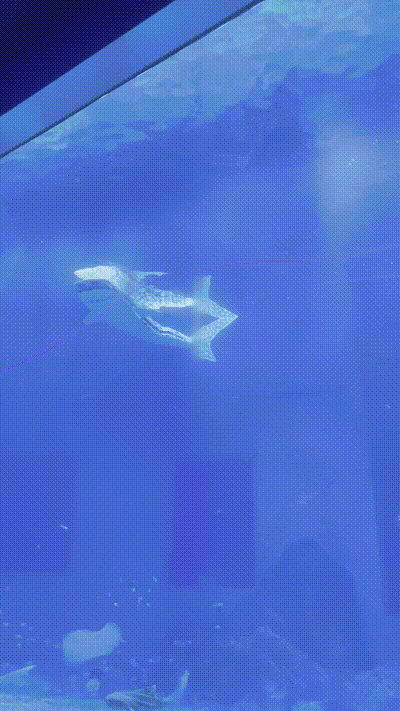Visitors find robotic fake whale shark in China aquarium
Is this a more humane way or just dishonest?

An ocean aquarium in the southern Chinese city of Shenzhen found itself in hot water after visitors found out that the "whale shark" there was actually a robot.
The "whale shark" was caught on camera by a Mothership reader who visited the aquarium, Xiaomeisha Seaworld, on Oct. 17 afternoon.
 Photo via Mothership reader
Photo via Mothership reader
According to her videos, the "whale shark" is a blue-grey robot with white spots painted all over its body, similar to its real-life counterpart.
 Video via Mothership reader
Video via Mothership reader
It could be seen moving slowly in the tank while surrounded by other real marine animals and divers.
While its appearance may be deceiving, its rectangular head and visible machine parts made it obvious that it was not a real shark.
 Video via Mothership reader
Video via Mothership reader
Mothership understands that the shark was operated using a remote control.
Flooded with criticism
While the aquarium had only opened its doors on Oct. 1, criticism quickly flooded social media over its "whale shark" robot.
On Xiaohongshu, a visitor even accused the aquarium of "misleading customers" with the naming of the tank, as the name, "Whale shark tank (鲸鲨池)," did not mention anything about the shark being a robot.
Mothership understands that "a number of visitors" had expressed their unhappiness with the fake shark and demanded refunds from the aquarium's customer service.
The aquarium charges 240 yuan (S$44.23) for adult tickets and 150 yuan (S$27.64) for children's tickets.
Others praised robot shark & aquarium
However, it appeared that not everyone was against the idea of seeing a robot shark.
According to a Xiaohongshu user who visited the aquarium during a preview, she was surprised by how "hi-tech" the shark is, as it is both "waterproof" and “corrosion resistant".
 Screenshot via 梦卡kaka酒店控/Xiaohongshu
Screenshot via 梦卡kaka酒店控/Xiaohongshu
Under another Xiaohongshu post, which showcased the shark "swimming" with a mermaid performer at the aquarium, many commenters also applauded the "cool" appearance and "high-end" design.
 Screenshot via Henry-水下摄影/Xiaohongshu
Screenshot via Henry-水下摄影/Xiaohongshu
One commenter even contended that "all aquariums should keep robot sharks" so that they could be truly humane to the animals and protect their welfare.
 Screenshot via Henry-水下摄影/Xiaohongshu
Screenshot via Henry-水下摄影/Xiaohongshu
Was the aquarium being shady?
Checks by Mothership on Oct. 17 revealed that the aquarium did not change the name of the tank where the robot shark is or put up a separate notice reminding visitors that it is not a real shark.
 Photo via Mothership reader
Photo via Mothership reader
 Screenshot via Mothership reader
Screenshot via Mothership reader
However, the aquarium did publish a WeChat article that explicitly mentioned the shark was a robot on Sep. 27, three days before its official opening.
In the article, the aquarium also stated that it would be the first time the robot shark, which utilised "high-end technology used in aerospace", would be shown to visitors in southern China.
A physical signboard that stated that the "whale shark" is a robot shark could also be found outside the aquarium, although it was not clear when the signboard was put up.
 Photo via Mothership reader
Photo via Mothership reader
So, what is this robot shark?
According to a promotion video released by the aquarium on its official WeChat channel on Oct. 14, the robot shark has a length of 5.1m and weighs approximately 520kg.
It also comes with "13,000 parts and 156 sensors".
It can travel up to 0.7m per second and dive as deep as 10m.
"Leveraging its strictly- and precisely-designed control system, the robot shark can mimic a real whale shark perfectly," said the aquarium.
This includes "going up and down the water", "diving to a specific depth", "making a turn underwater", and "opening and closing its mouth".
Why is it put on display?
The aquarium also added in an Oct. 17 WeChat article that its intention behind showcasing the robot shark was to "promote the conservation of whale sharks" in a creative and eyeball-grabbing way.
According to the International Fund for Animal Welfare, whale sharks are an endangered species whose population is "currently decreasing".
Besides educating visitors on the species, the aquarium said it also hoped to "spark their young visitors' curiosity for both marine life and technology" with the robot shark.
The aquarium highlighted the contribution that "robot fish" have made to scientific research, including diving into narrow or dangerous waters to retrieve data.
Top images via Mothership reader
MORE STORIES




















